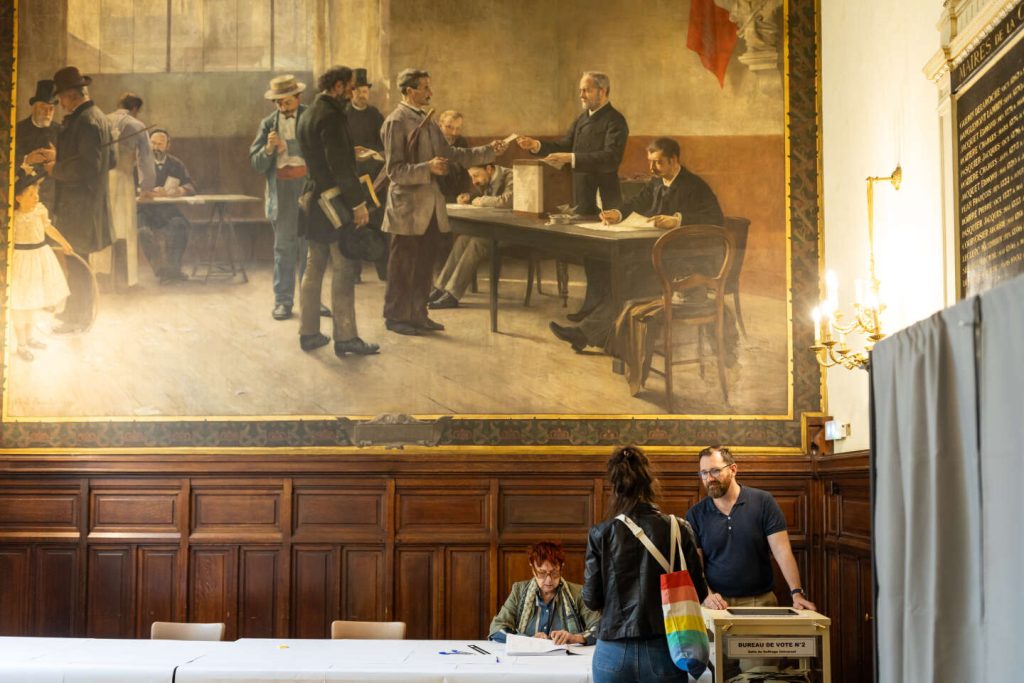The European election held on June 9, 2024, saw a significant increase in voter turnout compared to previous years. According to the Ministry of the Interior, the participation rate stood at 45.26% at 5:00 pm in France, which was almost a two-point increase from 2019. This follows a remarkable eight-point increase in turnout in 2019 compared to 2014. The high voter mobilization was likely influenced by recent televised debates, the tragic international context, and French citizens’ concerns about the country’s challenges.
Across France, voting began early in the morning, with local officials like François Le Tinnier at the Uzel town hall in Brittany noting a strong turnout. Many attribute this high participation to a growing sense of frustration, particularly in rural areas like Brittany, where feelings of marginalization are on the rise alongside support for far-right parties like the National Rally (RN). While discussions around Europe were scarce, concerns about rising electricity prices, food costs, fuel prices, immigration, and a perceived crisis of authority were prevalent among voters like José and Suzanne Diaz, who supported the RN.
Similar sentiments were echoed in Pas-de-Calais, where the RN had made significant gains in the 2019 European elections, particularly in regions like audomaroise and Ternois. In Rebergues, a small village in audomaroise with a population of 450, the RN’s lead candidate had received 58% of the votes in 2019. As residents expressed dissatisfaction with working for others and concerns about welfare dependency, some, like Jacques and Cathy, opted to vote for alternative parties like the Animalist Party, despite the village’s traditional right-wing leanings.
The election was seen as decisive by many, with voters expressing a desire for change and a sense of urgency in addressing societal issues. While some, like François Le Tinnier, were surprised by the high turnout, others believed it reflected a deep-rooted sense of civic duty among older voters. The rise in support for parties like the RN was attributed to a mixture of economic concerns, fears about immigration, and disillusionment with mainstream political parties, particularly on the left. This shift in political dynamics was evident in regions like the mining basin of Pas-de-Calais, where the RN’s message resonated strongly.
Despite the focus on domestic issues, the European election also held broader implications for France’s role in the EU and the wider international community. While specific policy discussions around Europe may have been limited, the election outcome reflected a sentiment of change and a growing discomfort with the status quo. As voters navigate complex challenges both within France and abroad, the European election serves as a barometer for the shifting political landscape and the priorities of the French electorate. Ultimately, the increased participation and diverse range of political choices reflect a desire for representation, change, and a reevaluation of the country’s direction within the European context.


